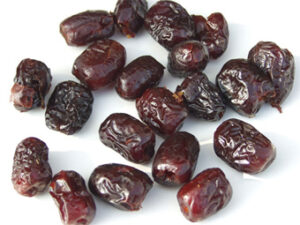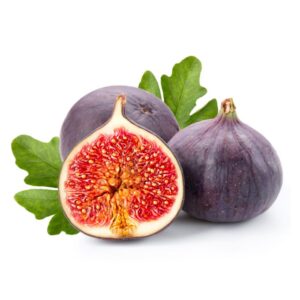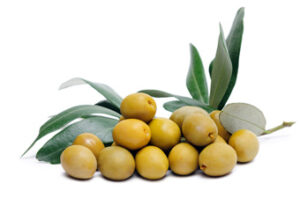Fruits are not just delicious; they are a divine bounty mentioned in the Quran and the Hadith, often symbolizing blessings, sustenance, and spiritual nourishment. These fruits, rich in symbolism and health benefits, are considered blessed due to their mention in Islamic texts. This blog post will delve into the significance, benefits, and spiritual essence of these sacred fruits, highlighting their role in both physical and spiritual nourishment.
The 7 Blessed Fruits Mentioned in the Quran
1. Dates: The Prophet’s Favorite
Dates, known as “Tamr” in Arabic, are frequently mentioned in the Quran and Hadith. They are not only a staple food in the Middle East but also hold a special place in Islamic tradition. The Prophet Muhammad (PBUH) is reported to have said, “A family that has dates will not be hungry” (Sahih Muslim).
Health Benefits: Dates are rich in fiber, vitamins, and minerals, making them an excellent source of natural energy. They are known to aid digestion, boost heart health, and provide essential nutrients.

Spiritual Significance: Dates are often consumed to break the fast during Ramadan, following the tradition of the Prophet (PBUH). The fruit symbolizes abundance and sustenance, and its mention in the Quran highlights its importance as a blessed food.
2. Figs: The Fruit of Paradise
Figs, or “Tin” in Arabic, are another fruit revered in Islamic tradition. They are directly mentioned in the Quran in Surah At-Tin (Chapter 95), emphasizing their significance.
Health Benefits: Figs are a rich source of fiber, vitamins, and minerals, including potassium and magnesium. They are known to promote digestive health, regulate blood sugar levels, and provide antioxidants.

Spiritual Significance: The mention of figs in the Quran signifies their importance and blessed nature. They are often associated with prosperity and well-being, making them a symbol of divine provision.
3. Pomegranates: The Symbol of Goodness
Pomegranates, or “Rumman,” are described in the Quran as fruits found in paradise. They are mentioned multiple times, symbolizing beauty, fertility, and eternal life.
Health Benefits: Pomegranates are packed with antioxidants, vitamins, and anti-inflammatory properties. They are known to improve heart health, reduce cancer risk, and enhance skin health.
Spiritual Significance: The pomegranate’s mention as a fruit of paradise reflects its purity and divine blessing. It symbolizes the beauty and bounty of paradise, serving as a reminder of the rewards awaiting the faithful.
4. Olives: The Blessed Tree
Olives, known as “Zayt,” are mentioned in both the Quran and Hadith, symbolizing peace and prosperity. The olive tree is described as a blessed tree, producing fruits with numerous health benefits.

Health Benefits: Olives and olive oil are rich in healthy fats, particularly monounsaturated fats, and antioxidants. They are known to promote heart health, reduce inflammation, and provide essential nutrients.
Spiritual Significance: Olives are often associated with peace and blessings in Islamic tradition. The olive tree’s mention as a “blessed tree” in the Quran highlights its spiritual and physical benefits, making it a symbol of divine grace.
5. Grapes: The Fruit of Sustenance
Grapes, or “Inab,” are frequently mentioned in the Quran as a symbol of sustenance and divine provision. They are described as fruits found in paradise, representing abundance and prosperity.
Health Benefits: Grapes are rich in vitamins, minerals, and antioxidants. They are known to promote heart health, protect against certain cancers, and provide hydration.
Spiritual Significance: The mention of grapes in the Quran symbolizes divine provision and sustenance. They are often associated with abundance and prosperity, serving as a reminder of Allah’s blessings.
6. Bananas: The Fruits of Comfort
Bananas, referred to as “Talh” in the Quran, are described as fruits found in paradise. They are associated with comfort and ease, symbolizing the rewards awaiting the righteous in the hereafter.
Health Benefits: Bananas are a rich source of potassium, vitamin C, and dietary fiber. They are known to support heart health, aid digestion, and provide a quick source of energy.
Spiritual Significance: The mention of bananas in the Quran as fruits of paradise reflects their comforting and soothing nature. They symbolize the ease and comfort that Allah grants to the faithful.
7. Cucumbers: The Refreshing Delight
Cucumbers, known as “Qitha'” in Arabic, are mentioned in the Quran as part of the blessings bestowed upon the Israelites. They are refreshing and hydrating, often associated with nourishment and health.
Health Benefits: Cucumbers are low in calories and high in water content, making them an excellent choice for hydration. They are rich in vitamins and antioxidants, promoting skin health and digestion.
Spiritual Significance: The mention of cucumbers in the Quran highlights their role as a refreshing and nourishing food. They symbolize the bounties and blessings that Allah provides to His creations.
The Symbolism of Blessed Fruits in Islamic Tradition
The mention of these fruits in the Quran and Hadith is not merely for their nutritional benefits but also for their symbolic significance. Each fruit carries a deeper spiritual meaning, representing various aspects of life and the divine blessings bestowed upon humanity. The consumption of these blessed fruits serves as a reminder of Allah’s mercy and generosity, encouraging gratitude and mindfulness in everyday life.
Practical Ways to Incorporate Blessed Fruits in Daily Life
Incorporating these blessed fruits into our daily diet is not only beneficial for health but also a way to connect with the spiritual teachings of Islam. Here are some practical ways to include these fruits in your meals:
- Dates: Enjoy them as a snack, add them to smoothies, or use them in desserts.
- Figs: Eat them fresh or dried, add them to salads, or use them in baking.
- Pomegranates: Sprinkle the seeds on salads, yogurt, or enjoy them as a refreshing juice.
- Olives: Use olive oil in cooking, add olives to salads, or enjoy them as a healthy snack.
- Grapes: Eat them fresh, add them to fruit salads, or freeze them for a cool treat.
- Bananas: Enjoy them as a quick snack, add them to smoothies, or use them in baking.
- Cucumbers: Slice them for salads, use them in sandwiches, or enjoy them with hummus.
Conclusion: A Celebration of Divine Bounty
The blessed fruits mentioned in the Quran and Hadith are a testament to Allah’s mercy and generosity. They not only provide physical nourishment but also serve as spiritual reminders of the divine blessings we often take for granted. By incorporating these fruits into our daily lives, we can cultivate gratitude, mindfulness, and a deeper connection to our faith.
As we enjoy the sweet, refreshing, and nourishing qualities of these divine delights, let us remember the spiritual significance they hold and the lessons they teach. In a world often filled with distractions and material pursuits, these blessed fruits remind us of the simplicity, purity, and abundance of Allah’s provisions. They encourage us to seek balance in our lives, appreciate the bounties we have, and strive for a life of gratitude and mindfulness.
May these divine delights nourish our bodies, uplift our spirits, and bring us closer to the path of righteousness. Ameen.





